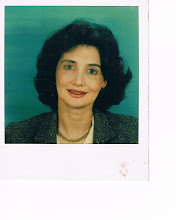Job Market Improves for Some by Barbara LaBier
http://www.resumecrafters.com/
Improvement in employment is occurring for groups of college and skilled workers specifically --- IT, technical workers, lawyers, finance and accountants, according to Jonas Prising of Jobs America.
“There are 50 million unemployed and 3 million job openings. While over all employment is 9.4 %, there is a bifurcation. College and skilled worker unemployment is 5% while youth and non-skilled is 18%. The level of skills and devotion to life long learning is vital,” added Prising in a CNBC interview.
Even recent graduates with superior skills are having problems getting their foot in the door,
" I talk with my friends and most of them are having a difficult time getting hired. Everyone has a great resume and it seems as though many have had an internship on the Hill and worked for a Congressman, " according to Eric White, a recent graduate of George Washington University with experience working at a law firm and the Hill, with a background in Japanese.
Right now, employers are cautious about who they hire, making it tough for the average person. They are waiting for job seekers with the right skill set. Jobs in sales for example, are filled internally while other jobs which require credentials and education are recruited externally.
Employers complain that often they can’t find skilled labor. And consequently, they are willing to wait until this person appears.
You can enhance your chances of being found by writing bogs and creating your own brand. Of course, writing information or creating negative videos can hurt you.
http://www.resumecrafters.com/
Improvement in employment is occurring for groups of college and skilled workers specifically --- IT, technical workers, lawyers, finance and accountants, according to Jonas Prising of Jobs America.
“There are 50 million unemployed and 3 million job openings. While over all employment is 9.4 %, there is a bifurcation. College and skilled worker unemployment is 5% while youth and non-skilled is 18%. The level of skills and devotion to life long learning is vital,” added Prising in a CNBC interview.
Even recent graduates with superior skills are having problems getting their foot in the door,
" I talk with my friends and most of them are having a difficult time getting hired. Everyone has a great resume and it seems as though many have had an internship on the Hill and worked for a Congressman, " according to Eric White, a recent graduate of George Washington University with experience working at a law firm and the Hill, with a background in Japanese.
Right now, employers are cautious about who they hire, making it tough for the average person. They are waiting for job seekers with the right skill set. Jobs in sales for example, are filled internally while other jobs which require credentials and education are recruited externally.
Employers complain that often they can’t find skilled labor. And consequently, they are willing to wait until this person appears.
You can enhance your chances of being found by writing bogs and creating your own brand. Of course, writing information or creating negative videos can hurt you.

